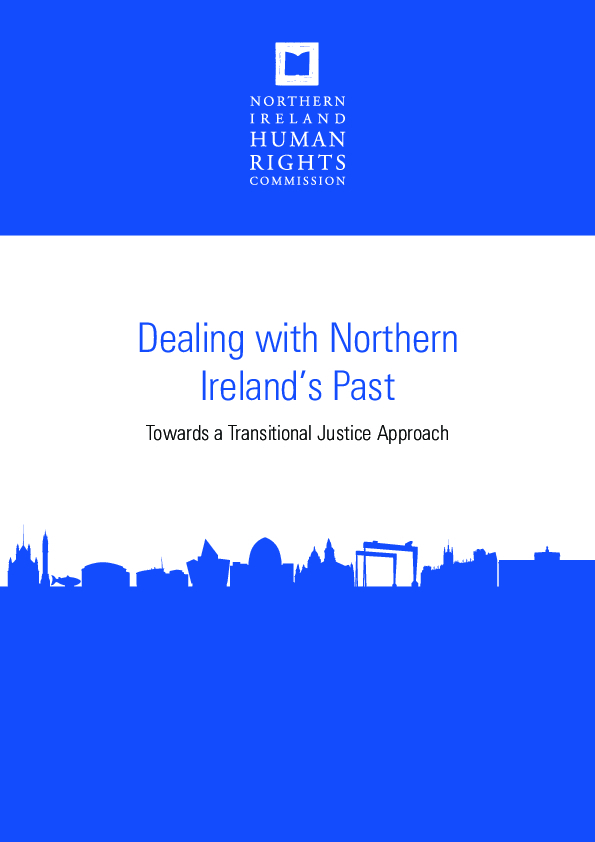Dealing with Northern Ireland's Past: Towards a transitional justice approach (October 2013)
Northern Ireland endured decades of the horror of the troubles. It lives with the legacy. We are all called on to contribute to the healing of the wounds in our society. Central to the process of healing is the delivery of a programme of what is termed “transitional justice”. This technical term refers to the range of judicial and non-judicial processes that are necessary to deliver truth, justice, accountability and redress in a society emerging from armed conflict. While the mix of such processes, and the manner in which they are carried out, will differ from one territory to another, what they should all share is a common thread that renders them comprehensive, complementary and coherent. It is on that basis that transitional justice can make a substantial contribution to the consolidation of peace and the building of a new and respectful society that honours the life and dignity of all its members.
Northern Ireland has already achieved a great deal. Much was accomplished prior to the adoption of the Belfast (Good Friday) Agreement. For instance, the fair employment and treatment law had been enacted, the Housing Executive was established and the Community Relations Council had already embarked on its essential work. Many other initiatives have occurred since 1998. Since these are chronicled in this report - suffice to acknowledge here that we benefit or have already benefitted from a great deal of the initiatives that would typically serve as building blocks for transitional justice. Much though remains missing. Crucial building blocks, such as those for truth recovery or the addressing of the needs of non-fatal victims of the conflict, have not been put in place. Most glaring of all has been the absence of an architectural plan for the overall construction. In other words, and despite such worthy efforts as that of the Consultative Group on the Past, Northern Ireland has never benefitted from a coherent and integrated transitional justice framework.
Our society is suffering by reason of these omissions. Some of our most vulnerable people remain at the margins, with inadequate acknowledgement of their suffering; many are dying without ever being able to share their stories of pain and loss. There is not a day that goes by without the unresolved senses of neglect and injustice triggering societal problems. The lack of a truth recovery process means that tribal myths will continue to trump actual memory.
National human rights institutions, such as the Northern Ireland Human Rights Commission (the Commission or the NIHRC), have filled an important role in advancing transitional justice in different countries around the world. In recent years, there is a growing expectation that such institutions would be engaged in this arena.

Download Documents
Your browser is out-of-date!
Update your browser to view this website correctly. Update my browser now